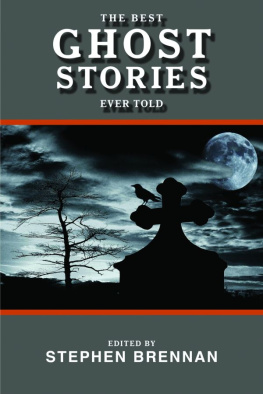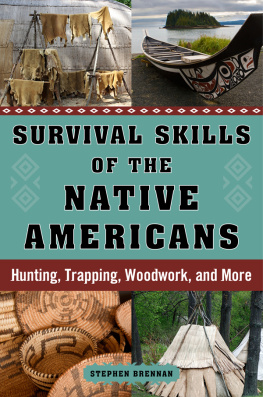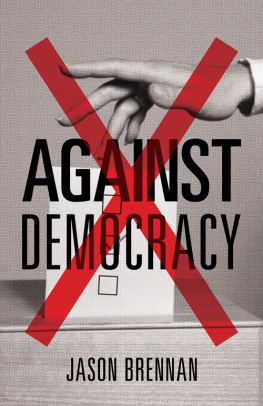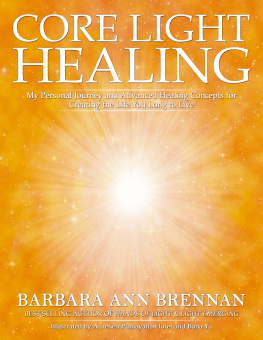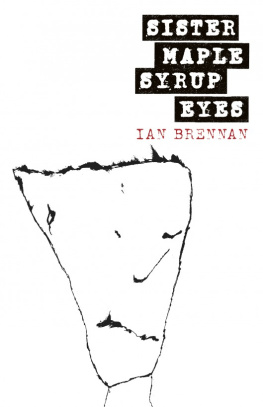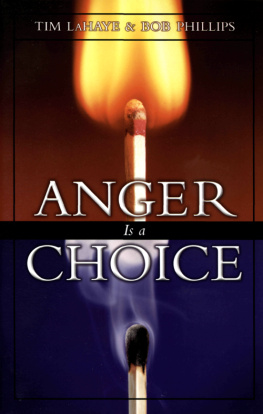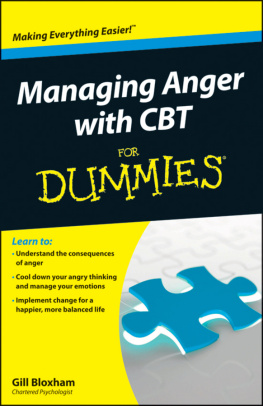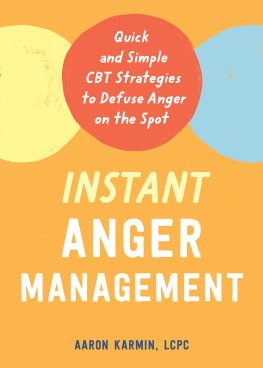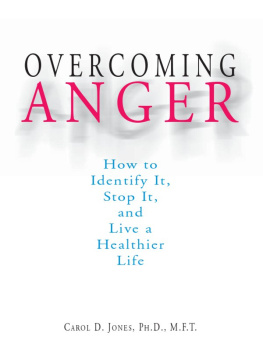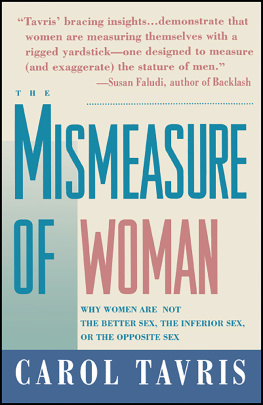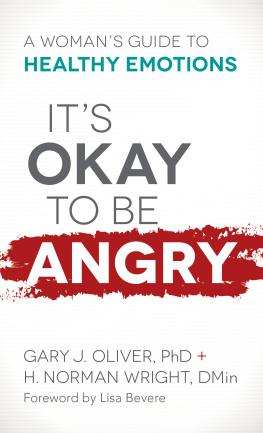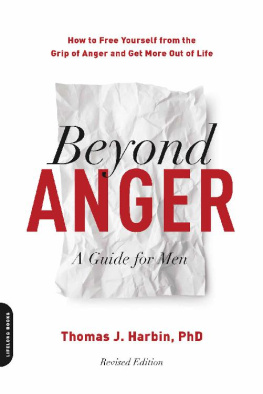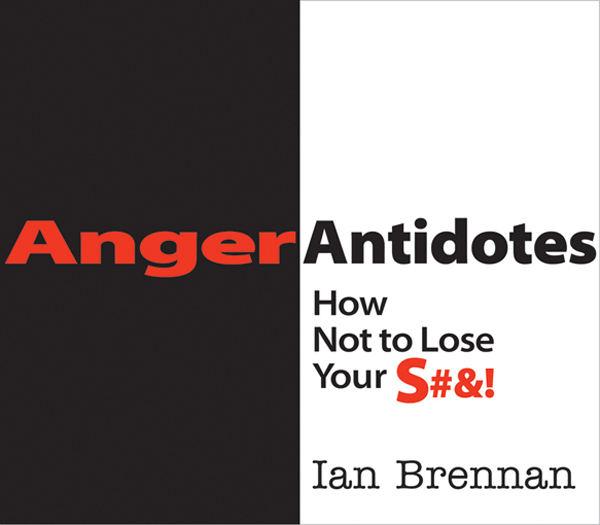
Copyright 2011 by Ian Brennan
All rights reserved
Printed in the United States of America
First Edition
For information about permission to reproduce selections from this book, write to
Permissions, W. W. Norton & Company, Inc., 500 Fifth Avenue, New York, NY 10110
For information about special discounts for bulk purchases, please contact
W. W. Norton Special Sales at specialsales@wwnorton.com or 800-233-4830
Manufacturing by Malloy Printing
Book design by Jonathan Lippincott
Production manager: Leeann Graham
Ebook conversion by Erin Schultz, TIPS Technical Publishing, Inc.
Library of Congress Cataloging-in-Publication Data
Brennan, Ian.
Anger antidotes : how not to lose your S#&! / Ian Brennan.
p. cm.
Includes bibliographical references and index.
ISBN 978-0-393-70705-2 (pbk.)
1. Anger. 2. Stress management. 3. Violence. I. Title.
BF575.A5B74 2011
152.47dc22
2010044405
ISBN: 978-0-393-70705-2 (pbk.)
W. W. Norton & Company, Inc.,
500 Fifth Avenue, New York, N.Y. 10110
www.wwnorton.com
W. W. Norton & Company Ltd.,
Castle House, 75/76 Wells Street, London W1T 3QT
1 2 3 4 5 6 7 8 9 0
Not If, but How?
Not Who, but What?
Not what we dont, but do, want
CONTENTS
ACKNOWLEDGMENTS
Thanks to Joan Zweben
for the support, encouragement,
and bringing me to the W. W. Norton family
This book is dedicated to
Occhi di Luce.
I never wouldve finished writing this
(... 17+ years in the making)
without your lighting the way.
PREFACE
T his book is meant to be as minimal and elemental as possible. The core points are deliberately unbelabored. Rather than taking a few ideas and stretching them out over an entire book, here instead, chapters have been concentrated into mini-manuals that hopefully, in their totality, contain a librarys worth of material.
The objective is to distill down to their most fundamental aspects the universal structures that form the basis of most human problems, both today and since time immemorial.
When we move beyond superficial differences (race, gender, age, etc.), these underlying patterns are simple to recognize and talk about, though not necessarily easy to apply and execute. More than an intellectual problem, it is our emotions that interfere with making sound choices. Thus, even the most learned individuals do know better, but nonetheless are capable of making colossally stupid errors in judgment and conduct.
As much as we advance technologically (including the proliferation of communicational devices that, ironically, have helped accomplish little towards improving communication), we remain in the Dark Ages interpersonally, still grappling with the same basic problems and repeating near identical errors of generations past, though the inability to move beyond these limitations could in fact one day spell our end.
What follows is by no means designed to be a definitive statement on the subject of anger management or crisis resolution. Instead, the intention is to stimulate thought, confident that having the correct answers is best kept secondary to engaging in an ongoing exploration for truth. We all understand and know far more than we can articulate. The approach here is most akin to a review since almost certainly the majority of us have some expertise interpersonally (or else itd be highly improbable that we would have made it this far). Becoming more fully conscious of our existing intuitive knowledge can simply help to reinforce and more deeply integrate it.
It is recognized that some may elect to reject all or some of the ideas put forth here. The hope is that those rejections will at least come to include an increased recognition that these types of refusals themselves still involve choice and responsibility on the part of the doer.
What follows is fashioned both for those who are struggling with their own anger as well as anyone suffering due to anothers (as well as the rest of us, who are probably experiencing some combination of these factors, to varying degrees).
Personal growth need not be shrouded in mystery, available only to the educated and most privileged. It remains my conviction that any information that might aid people in their everyday functioning be as accessible to and widely-distributed as possible for all, not requiring Herculean scholarly effort to uncover and decipher.
In keeping with that, Anger Antidotes is written so that it can be read quite easily, cover-to-cover, during a single sitting, or randomly, in any order, and potentially be of value either way. (Additionally, central concepts recur throughout and most of them are catalogued in the brief index at the end.) Flexibility and openness to a wide variety of options are key skills for managing frustration, and hopefully the very organization of this book embodies them.
INTRODUCTION
MEDITATIONS ON A LIFE SPENT IN THE LOONY BIN
I was baptized by the fires of anger at birthsubmerged in the fury of a mentally unstable family, stretching back generations.
This life training (intensified by also having a sister with Down syndrome) led to a make-or-be- broken result and a set of skills well-honed for the world of emergency psychiatry (i.e., the profession thats been rated as most dangerous in terms of likelihood of being assaulted), where I supported myself from age 20 onwards, quite literally starting from the bottom-upchanging diapers in an unending tag-team on the nightshift of the geriatric ward, traipsing from one end of the hallway to another and then back again to re-change those who had just been cleaned. It was simultaneously back-breaking and repulsive work.
Circuitously, this led to my becoming an expert in verbal de-escalation and anger management, presenting an average of 200 classes per year nationwide from 1993 onwards as well as one-on-one counseling for those in trouble with the law for violence, including celebrity clients such as a particularly notorious former boxing champion and one of the most storied music producers of all time.
I am not of the exclusionary school that believes you have to have a problem with anger to understand it. Nor am I blind to the gullibility of the other extreme that imbues professionals in this area with near saint-like status and expectations. We all struggle and have room for improvement in the area of compassion and self control, few more so than those who stand convinced that they dont.
In the ER, raised fists, thrown chairs, threats, and brutal (often, uncannily on-target) character assassinations were the norm. In that milieu, verbal and physical abuse become taken-for-granted occupational hazards.
For years I worked with a veteran staff member on a locked ward in Oakland, California, who attempted to regale all newcomers with his extensive list of on-the-job injuries. The aim was to display his superior level of accomplishment in the field, but instead, unwittingly, all he succeeded in exposing by way of these war stories were his painfully obvious shortcomings.
Staying serene is not as dramatic as combat. It is much harder to brag about what didnt happen than what did.
Heres hoping for a quiet existence, led courage-ously, fully embracing the intention of peace to all, harm to none (... well, at least, almost none, hopefully).
PART ONE
UNIVERSAL STRUCTURES
(Please note: When the word violence or violent is used throughout this book, it is often meant to encompass the entire continuumverbal, nonverbal, emotional, the faint and not-so-faintand not just exclusively the blatant, physical manifestations of aggression.)
Next page


